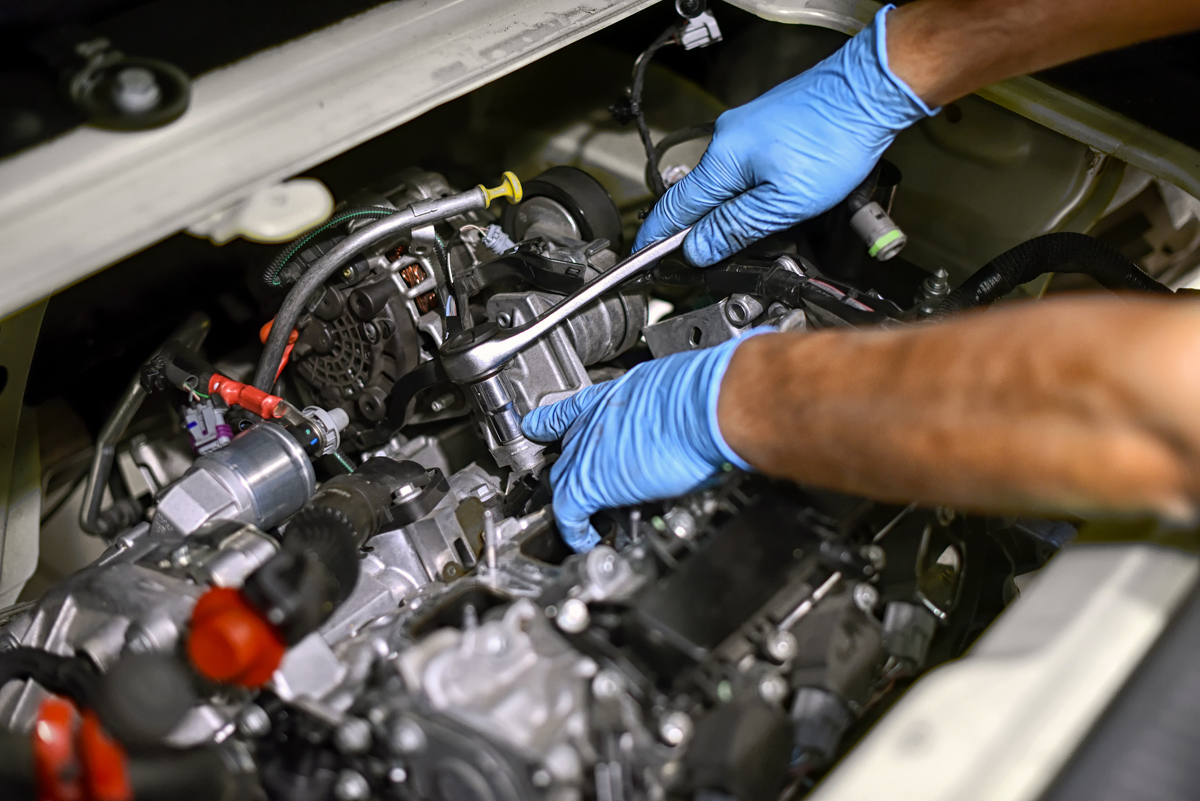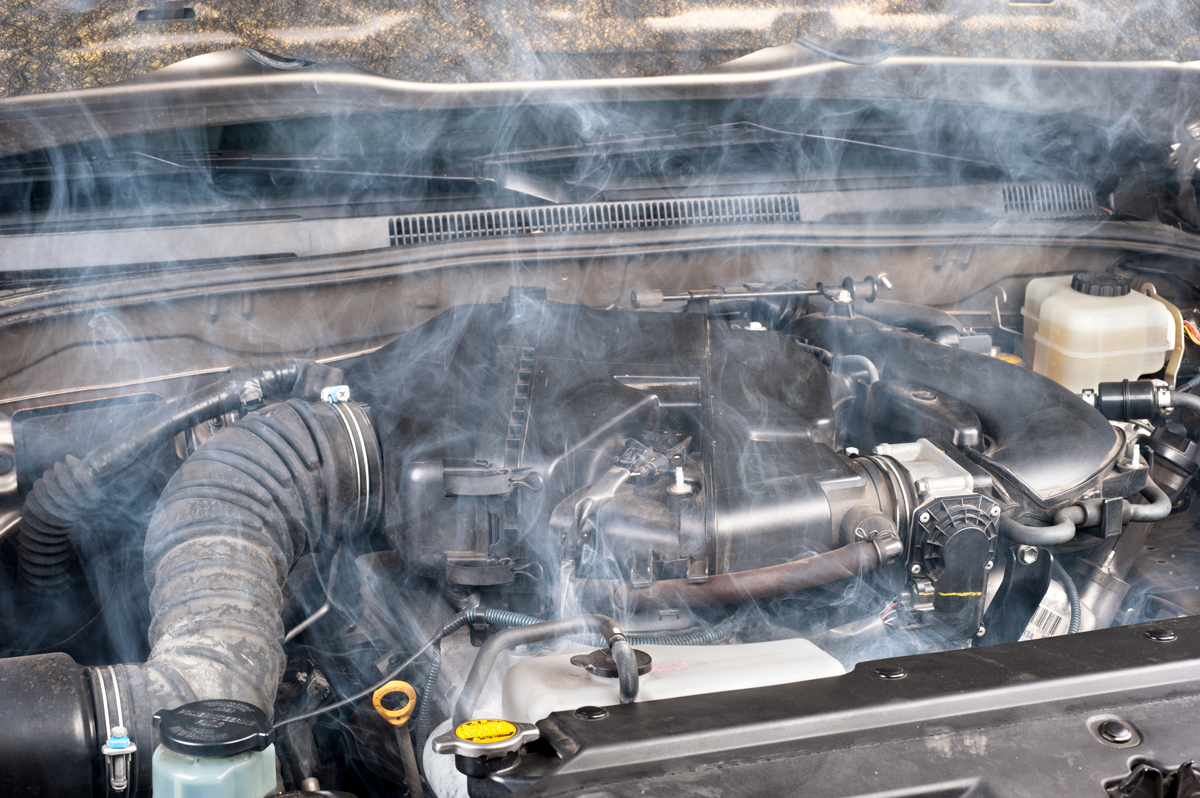
If you are searching for some typical “car engine problems“, this post will help!
1. Clogged Radiator
Dirty coolant can cause an array of issues. If your radiator happens to get clogged with sediment from dirty coolant, it can then cause your engine to overheat. If you use hard water, your radiator can become corroded.
2. Missing Or Loose Gas Cap
A missing or loose gas cap can create more problems than expected. Generally, replacing or tightening a gas cap is going to be the cheapest/easiest way to preserve your car’s life. A loose or missing cap can cause the gas to evaporate from the car, decreasing the gas mileage. This can cost hundreds to thousand of dollars.
3. Worn Spark Plug
This may be small, but it is extremely important for your engine’s efficiency. The spark plug is what pushes your car forward. It has the function of igniting compressed gas within the engine. Worn plugs may make a weak spark, preventing the engine from igniting fully. Any misfires can affect the engine and gas mileage, resulting in further damage.
4. Poor Compression
If the fuel and air are not properly compressed, the engine will not be able to complete the combustion process. When valves aren’t properly sealed, piston rings are worn, or there is a hole in the cylinder, there could be an air leak. The leak can then cause a lack of compression.
5. Loss Of Coolant
Coolant loss is one of the most common reasons for overheating. If your engine is consistently overheating, this high temperature can cause major damage. Prevention is undoubtedly the best treatment to avoid damage. Preventative measures can ensure clean coolant and a good condition for the cooling system.
6. Spark Knock
This combustion is usually caused by the building up of pressure in the combustion chamber. When this is occurring, you will be able to hear a pinging or knocking noise. A small amount of knocking will not cause major damage, but heavier knocking can cause serious engine problems. These issues include holes in the pistons, pounding out piston grooves, crushing rod bearings, crack rings or even blowing a head gasket. Prolonged knocking should be handled by car care professionals immediately.
7. Dirty Oil
Oil can certainly build up and leave unwanted deposits on the spark plugs, intake valves and combustion chambers. This can easily ruin the bearings by leaving debris, which can embed on the surface. If, perhaps, the oil filter is clogged or missing, this can create serious issues.
8. Oil Pump Failure
A failing oil pump has been proven to cause oil starvation and damage any engine. Oil always needs to be the proper viscosity, meaning it needs light to move quickly.
9. Faulty Or Broken Oxygen Sensor
This sensor will measure just how much oxygen has not been burned in the exhaust. It will then notify the data system on how much gas remains in the gas tank. Any problems with the oxygen sensor will result in incorrect information passed on to the car. This can result in lower gas mileage.
10. Bad Air/Fuel Mix
The most obvious sign here is you are out of fuel or running on “E”. There could be a problem with your vehicle’s air intake, among other issues. If the intake doesn’t let air into the engine, it cannot work properly. Water that can’t enter the gas tank can also cause engine problems. Lastly, your vehicle may also be running to rich or lean on gas.
11. Poor Lubrication
Your car requires oil between moving parts. This will remove heat and reduce friction, at the same time. A regular oil change is crucial for the overall operation of the car. Failure to comply with routine maintenance can cause the car to overheat.
How To Tell If Car Engine Is Blown
What exactly does a blown engine mean? It is easiest to understand a blown engine as any type of damage/failure that requires an overhaul or even a replacement of the engine. There are a number of components that can become damaged enough to cause serious repairs for any engine.
Rods, Bearings And Pings
Components within the car that transfer power from the pistons, including rods, pins and bearings, can cause engine failure. Keep an eye out for these things: low oil pressure, ticking/tapping sounds, pulsing or rattling during acceleration.
Cracked Engine Block
Whenever the engine block cracks, this is an obvious sign the engine has been blown. If this cracks, the engine will not be able to contain the pressures of fuels exploding and pushing the pistons to produce the proper amount of power. Signs to look for include overheating, white smoke coming from the exhaust and coolant leaks.
Pistons, Rings And Cylinders
Pistons do the heavy lifting, which includes producing the necessary power to move the vehicle. The pistons will go up and down within cylinder walls. The rings, meanwhile, are responsible for closing the gaps between the walls and pistons. Any damage here can cause an engine replacement.
How Does The Engine Work?
Your engine works from the inside of the vehicle. This is why it is referred to as an internal combustion engine. The main goal of the engine is to convert gas into energy, enabling the car to move. Electric cars and newer hybrid models have different energy sources, yet the goal remains the same here. Simply put, a car without a properly operating engine will be useless.
Having regular maintenance performed on the car can be pricey, but it is well worth the investment in the long run. Make sure you keep up with oil changes and look out for any engine issues.
Rov-N-Techs In Scottsdale, Arizona
Rov-N-Techs performs all factory recommended services on Land Rovers & Jaguars at affordable prices! Master Technicians, Joe Caraway and Kevin Curtis worked at Land Rover of North Scottsdale for 10 years before opening their own shop in 2006 under the name of “Rover Techs”. Now known as “Rov-N-Techs” Joe and Kevin offer over 35 years of combined Land Rover experience. Contact us today!


